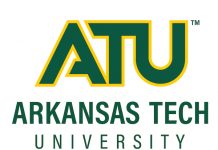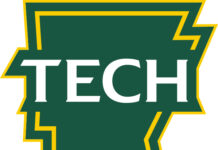K-12 teachers from around the Natural State visited Arkansas Tech University during June 2017 to participate in Project Lead the Way (PLTW) conferences designed to enhance their classroom instruction in science, technology, engineering and mathematics (STEM).
The conferences included a seminar in computer science June 26-30 made possible through a grant from the Arkansas Department of Education.
Middle school teachers from the public school districts in Alma, Beebe, Crossett, Fayetteville, Fountain Lake, Little Rock, North Little Rock, Pine Bluff, Pulaski County, Russellville, Smackover, Star City and Van Buren gained training that will assist them in delivering computer science in elective classes and for the Arkansas coding block for seventh and eighth grade students.
“This hands-on, project-problem based instruction brings computer science to life for middle school students and shows them the real world applications that computer science can have,” said Vic Dreier, director of the ATU STEM Institute and PLTW state affiliate director. “These classes are designed to engage and empower our young people in the world of computer science and show them a future in the field. Arkansas Tech University is proud to have several degree options for these students as they make their way to college for computer science, including one of the only institutions to have a computer science education degree.”
Project Lead The Way is a nonprofit organization that provides a transformative learning experience for K-12 students and teachers across the U.S.
“We create an engaging classroom environment unlike any other,” states PLTW on its website. “PLTW empowers students to develop and apply in-demand, transportable skills by exploring real-world challenges. Through our pathways in computer science, engineering, and biomedical science, students not only learn technical skills, but also learn to solve problems, think critically and creatively, communicate, and collaborate. We also provide teachers with the training, resources, and support they need to engage students in real-world learning.”





